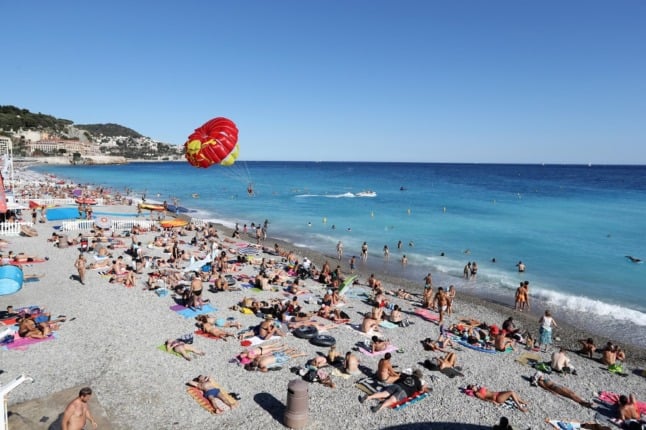Summer holidays are a big deal in France, with cities emptying out in July and August as people head to the coast or the countryside and it’s common for people to take a month off work – but which month?
One of the most iconic forms of rivalry between French holidaymakers is the opposition between the juilletistes and the aoûtiens – those who go on holiday in July versus those who prefer August.
The final weekend of July is usually one of the busiest weekends of the year on the roads as juilletistes return and aoûtiens set out. It even has a special name – chassé-croisé.
This year the school year ends on Friday, July 7th (apart from the unlucky pupils whose schools have Saturday classes, which end on July 8th) and Friday evening is predicted to be a busy one on the roads.
The chassé-croisé will be the weekend of July 29th and 30th and schools restart on Monday, September 4th.
The terms date back to the summer of 1969 when a fourth week of paid leave was voted into French law. It was a milestone piece of legislation that laid the basis for one of France’s most important annual traditions, les grandes vacances (the “big” summer holidays).
Suddenly eight out of 10 French people were able to take a summer holiday. Some chose July, others preferred August – made possible by the fact schools in France close for pretty much the whole of July and August.
But traditionally, the month you took your holidays reflected more than a simple preference.
‘Well-to-do’ vs. ‘working class’
Back in the 1960s the August holidaymakers were largely working class as this was the month factories closed across France. July on the other hand was reserved for executives and professionals. The idea of the ‘well-to-do’ July clan was contrasted with the ‘working class’ August clan.
The clichés grew into deep cultural stereotypes. The juilletistes were seen as lazy people who escaped to an exotic place while everyone else was still working hard, only to return to work in August when things are still calm. (Of course a juilletiste would say someone needed to keep the country running while the workers went away on holiday
READ ALSO: How much holiday time do the French really get every year?
Does the divide still exist today?
Times have changed and people no longer have the same habits. Over the years, as the service sector expanded and changed, the divide between the two different groups slowly faded away as people began to pick their holiday month based much more on personal preferences and workplace demands.
It’s now safe to say that this rivalry is no longer accurate, although it remains firmly installed in the French psyche.
August still remains the emblematic summer month – even more so than July – with cities virtually emptying and everything seemingly closing down. It’s common for local shops, cafés and pharmacies to be closed for the month, with signs simply reading ‘back in September’ and you should probably forget about getting any administrative task done during August.
READ ALSO The 8 signs that August has arrived in France
But for several years now, there has been a new tribe, the septembristes, who wait for September before packing up their things – probably to avoid the juilletistes and the aoûtiens.
As schools return in September, the septembriste is not a category easily accessible to everyone, but mostly made up by the young, the child-free and the elderly.
By Olivia Sorrel-Dejerine



 Please whitelist us to continue reading.
Please whitelist us to continue reading.
As I am retired and very fortunate to have friends in Paris, I get to visit sometimes twice a year from America. I love visiting and staying for maybe 4 weeks each time. My favorite months to visit are June when the roses in the Parc de Bagatelle are blooming, and it is absolutely worth the visit. And the other month is September so I can enjoy the European Heritage Days or what some call Patrimony weekend. If I could afford to move to Paris I would in a heartbeat.